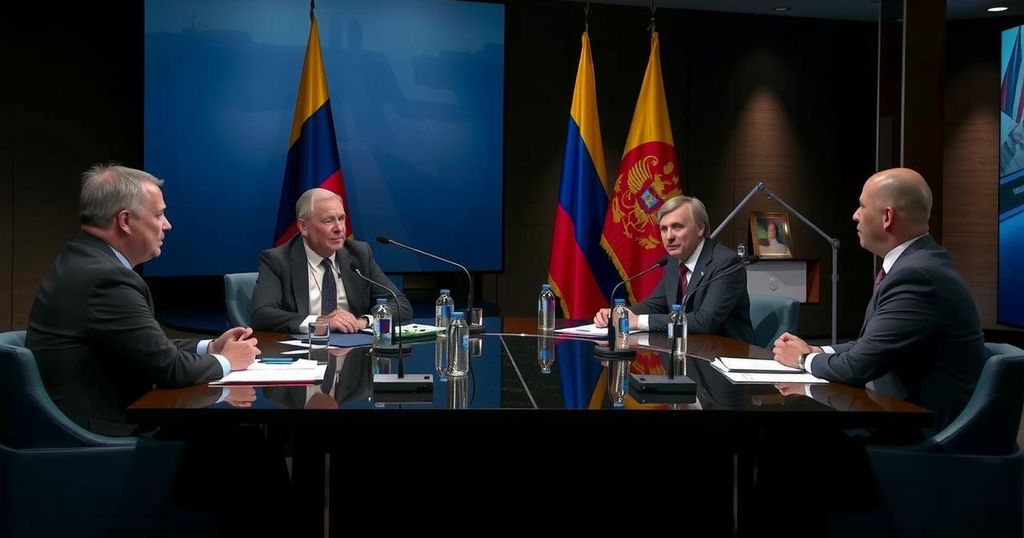The Misguided Focus of Moldova’s Election: A Broader Perspective Needed

Moldovan elections revealed President Maia Sandu’s struggle to garner support, as her strategy of framing the election as a choice between Europe and Russia proved divisive. The lack of voter engagement illustrated disconnects between government priorities and citizens’ concerns, complicating the narrative for EU membership. The narrow referendum outcome raises questions about domestic support and may fuel anti-EU sentiment in the context of ongoing geopolitical tensions.
The recent Moldovan elections have highlighted significant challenges for incumbent President Maia Sandu, particularly as her electoral strategy appeared to hinge on framing the election as a dichotomy between alignment with the European Union and allegiance to Russia. Sandu, despite early predictions of a narrow victory, struggled to secure the required majority in the presidential election, forcing her to confront a united opposition in the subsequent round. This approach has been scrutinized, especially given that a substantial portion of the Moldovan populace expressed disinterest in the EU membership proposition. A mere 50% turnout underscores the public’s apathy, signaling a disconnect between government narratives and the priorities of ordinary citizens, who are increasingly concerned that pursuing EU membership may jeopardize local agricultural traditions and livelihoods. Sandu’s allegations of fraud linked to pro-Russian factions surfaced prior to vote counting, yet such actions seemingly galvanized those inclined towards Russia rather than swaying undecided pro-European voters. Additionally, electoral restrictions placed on Moldovans residing in Russia and Transnistria, alongside the prohibition of Shor’s political party, impeded opportunities for broader participation in the democratic process. As the referendum on EU membership culminated in a narrow acceptance, it is critical to note that the support largely stemmed from the Moldovan diaspora rather than from a robust endorsement within the country itself. This reality complicates Sandu’s ability to leverage the vote as evidence of a strong mandate for EU integration, possibly intensifying anti-EU sentiments in regions like Transnistria and Gagauzia, where pro-Russian leanings predominate. Historically, such divisive politics risk rendering Moldova a pawn in the geopolitical struggle between the West and Russia, as exemplified by Ukraine’s experience. Sandu must articulate a clear economic rationale for EU membership, particularly in the light of Moldova’s stagnating economic growth and the adverse impacts of reduced trade with Russia, a previously significant partner. Moreover, Moldova grapples with a demographic crisis, experiencing the most dramatic population decline globally, exacerbated by the migration of skilled labor towards jobs in Europe and Russia. The critical challenge remains for the Moldovan economy to grow sufficiently to entice diaspora residents to return, yet casting the nation as a battleground in a geopolitical confrontation could hinder this recovery.
The political landscape in Moldova has become increasingly polarized amid the ongoing conflict between Western interests and Russian influence. President Maia Sandu’s administration has aimed to pivot towards the EU in the wake of geopolitical tensions, particularly following the conflict in Ukraine. However, domestic opposition and the varied interests of Moldovan citizens complicate this shift. Many Moldovans have historically had strong ties to Russia, and recent electoral dynamics have emphasized the growing desire among some for a balance rather than a binary alignment with Europe or Russia.
The Moldovan elections underscored the pitfalls of framing the electoral choice solely as a conflict between Europe and Russia. President Maia Sandu’s approach may jeopardize her administration’s stability while alienating significant portions of the electorate. Moving forward, fostering inclusive dialogue focused on domestic issues, rather than reducing the narrative to geopolitical binaries, will be critical for Moldova’s economic growth and political stability.
Original Source: responsiblestatecraft.org








